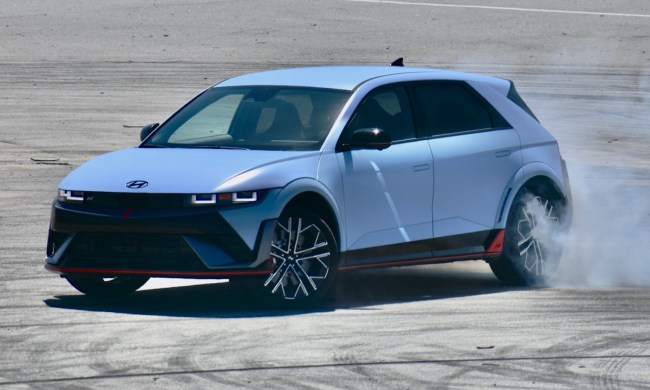Some will contest that many of the “flying cars” we hear about today are really no such thing, as their design prevents them from being driven on regular roads.
An amazing vehicle built by Slovakian research and development company KleinVision, on the other hand, is about as flying-car as you can get, with its rapid transformation from road vehicle into aircraft an impressive demonstration of what can be achieved in this sector of growing interest.
The AirCar, as it’s called, was recently taken for a test drive/flight at Slovakia’s Piestany Airport, with footage of the outing posted on YouTube (above).
The seemingly smooth conversion from car to plane occurs at the push of a button and only takes three minutes to perform. After that, you can step on the gas and take flight — though you do need about 330 yards of clear road in front of you to get safely off the ground.
Stefan Klein, founder and CEO of KleinVision, has been working on a flying car for several decades, with the two-seat AirCar bringing together the best of his team’s technologies developed over the years.
The current prototype uses a 1.6-liter BMW engine capable of a cruising speed of 125 mph (200 kph). The upcoming version will use an ADEPT light-aircraft engine that will give the AirCar a cruising speed of 186 mph (300 kph).
Commercial services
Companies big and small are currently racing to build compact aircraft in the hope of launching commercial flying-taxi services for short hops across cities, and impressive progress has been made in recent years.
With urban travel in mind, many of the current designs are electric-powered vertical takeoff and landing machines that require a relatively small space for getting off the ground and coming in to land. This means the AirCar’s runway requirement is likely to limit its ambitions to become part of a flying taxi service, though watching it hurtle along Fifth Avenue prior to takeoff would certainly be a draw.
KleinVision told DigitalTrends that the AirCar could go on sale commercially within six months with a starting price of around $600,000.
It’s worth noting that before it can take to the skies, local air regulators will first have to give it the nod. Oh, and if you rather fancy the idea of flying over gridlocked traffic on your way to work, remember — you’ll need a pilot’s license, too.


